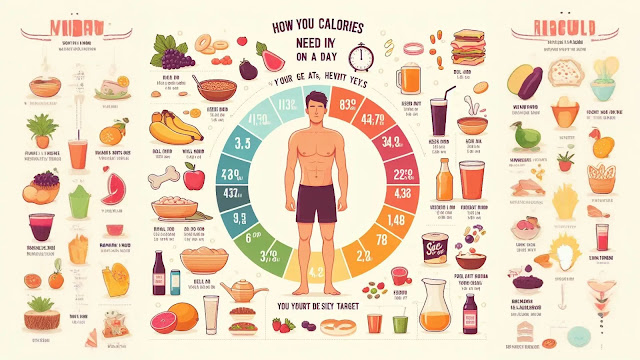How Many Calories Should I Have in a Day?
In the realm of health and nutrition, one question reigns supreme: “How many calories should I have in a day?” It’s a query that underpins countless diet plans, weight loss journeys, and overall wellness endeavors. Understanding the role of calories and how to strike the right balance is key to achieving and maintaining a healthy lifestyle.
What Are Calories?
Before delving into the ideal daily intake, let’s grasp the concept of calories. In simple terms, calories are units of energy derived from the foods and beverages we consume. They fuel our bodies, powering essential functions such as breathing, circulating blood, and repairing cells. However, consuming more calories than the body requires can lead to weight gain, while a deficit can result in weight loss.
Factors Influencing Caloric Needs:
Basal Metabolic Rate (BMR): This represents the number of calories your body needs to perform basic functions while at rest. Factors such as age, gender, weight, height, and muscle mass influence your BMR.
Physical Activity Level: Active individuals burn more calories than those leading sedentary lifestyles. The type, duration, and intensity of exercise play a crucial role in determining caloric expenditure.
Goals: Whether you aim to maintain, gain, or lose weight will dictate your caloric needs. For instance, a calorie surplus is required for muscle growth, while a deficit is necessary for weight loss.
Calculating Your Daily Caloric Intake:
Several methods can help estimate your daily calorie needs. One popular approach is using the Harris-Benedict Equation or the Mifflin-St Jeor Equation, which considers factors like age, gender, weight, height, and activity level. Online calculators based on these equations provide a starting point for determining your daily calorie requirement.
Recommended Daily Caloric Intake:
There is no one-size-fits-all answer to the question, “How many calories should I have in a day?” However, general guidelines exist based on age, gender, and activity level. For instance:
The average sedentary 18 plus male requires approximately 2,200 to 2,400 calories per day, while a sedentary 18 plus female needs around 1,800 to 2,000 calories.
Moderately active individuals may need an additional 200 to 400 calories, while highly active individuals might require even more to maintain their energy balance.
Monitoring and Adjusting Caloric Intake:
Achieving the right balance of calories is a dynamic process that may require adjustments over time. Monitoring your weight, energy levels, and overall well-being can help gauge whether your current caloric intake aligns with your goals. Remember, sustainable progress often involves gradual changes and patience.
How long can you go without water
Conclusion:
In the quest for optimal health and wellness, understanding your caloric needs is paramount. By considering factors such as basal metabolic rate, physical activity level, and goals, you can determine an appropriate daily calorie intake. Whether you aim to maintain weight, gain muscle, or shed pounds, striking the right balance is key to long-term success. Consultation with a healthcare professional or registered dietitian can provide personalized guidance tailored to your unique circumstances. Armed with this knowledge, you can embark on a journey towards a healthier, more balanced lifestyle.

